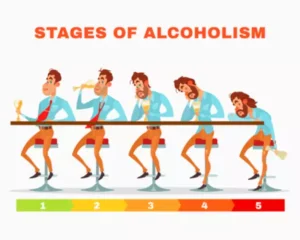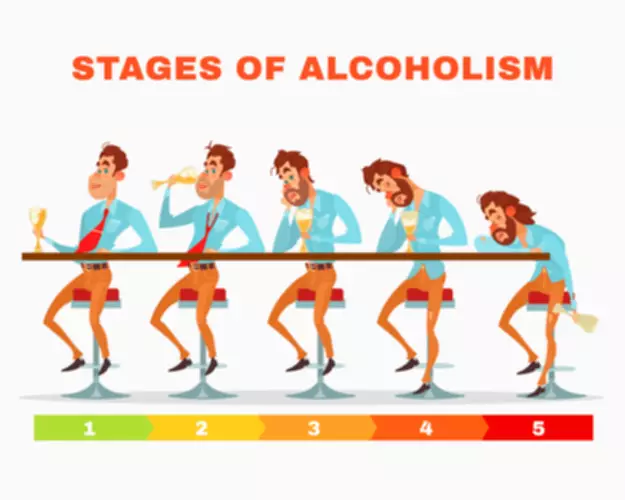
It’s not uncommon to feel restless, distracted, or even frustrated when first beginning meditation. You might struggle with maintaining focus, find yourself fidgeting, or experience physical discomfort from sitting still. These blockers can be discouraging, leading some to abandon the practice prematurely.
- The researchers found that mindfulness-based interventions led to significant reductions in cortisol levels and blood pressure compared to control conditions.
- Fortunately, various tools and skills can aid you in your recovery journey.
- Check with your healthcare provider or pharmacist before taking St. John’s wort.
- It’s a gentle way of opening your mind to greater awareness; to a truer, deeper understanding of yourself and your world.
How Can Meditation and Mindfulness Help You?
You’ll still need to undergo professional treatment and support for long-term sobriety. You know yourself best, so if you need more than just mindfulness and meditation, feel free to explore other options. If you or a loved one are recovering from addiction, you already know that intense emotions and cravings can be difficult to manage. Fortunately, various tools and skills can aid you in your recovery journey. Studies indicate that regular meditation can help reduce cravings and enhance resilience against stress reactivity, thus contributing to long-term sobriety.

Center for Teens, Young Adults and Families
For thousands of years, meditation has been an important spiritual practice in many cultures. However, meditation can be practiced apart from any religious beliefs, and many people today use it for the variety of ways it can support well-being. In the world of addiction recovery, meditation can help people establish a healthy balance that supports sobriety. Effective, lifelong recovery starts by treating the whole person, not just the substance use disorder. This means treating the underlying mental health issues at the root of addiction and providing patients with tools they need for a healthier, more satisfying life.
Betty Ford Center in Rancho Mirage
Whether you are struggling with addiction, mental health or both, our expert team is here to guide you every step of the way. Don’t wait— reach out today to take the first step toward taking control of your life. They often describe their recovery experience as a spiritual awakening, wherein they rediscover hope and direction that transcend their past struggles with addiction. Such narratives emphasize the point that spirituality is not merely an adjunct to treatment but a fundamental component that aids them in cultivating a new identity free from substances. A spiritual awakening in recovery encompasses significant personal transformation that occurs as individuals actively participate in healing and growth-oriented programs. Finally, love emerges as a transformative power that helps individuals overcome fear—a significant barrier in the recovery process.

You don’t have to adopt a particular belief system or invest a great deal of time and energy to take advantage of this expanded awareness. You only need to be willing to try new ways of addiction meditation kundalini experiencing the world. Introduced by the Buddha as a path to spiritual enlightenment more than 2,500 years ago, mindfulness is the art of being present in your own life. It’s a gentle way of opening your mind to greater awareness; to a truer, deeper understanding of yourself and your world. We start a new diet or join a fitness club or enroll in a class, and before we know it our enthusiasm fades and the stress ramps up.


According to a 2017 U.S. survey, the percentage of adults who practiced some form of meditation tripled between 2012 and 2017, from 4.1% to 14.2%. Ditation is an effective complement to addiction treatment, helping individuals develop the skills, self-awareness, and resilience needed to achieve and maintain recovery. They may be able to give you some resources or utilize substance abuse therapies that incorporate mindfulness or other form of meditation in your therapy sessions. Everyone has their own unique needs, preferences, and strengths, so not every meditation technique will work for everybody.
- Guided meditation involves a facilitator that guides you through a visualization exercise.
- Join us in discovering the healing power of meditation – your path to lasting recovery starts here.
- While meditation does not replace professional medical support, it serves as a valuable holistic tool.
- Mindfulness-Based Relapse Prevention, or MBRP, was created in 2010 at the Addictive Behaviors Research Center at the University of Washington.
- As your mind relaxes, it allows feelings and thoughts to flow freely.
Take the Next Step in Your Recovery Journey
Meditation also helps to expand a person’s perspective, allowing Oxford House them to assess their thoughts and feelings from multiple angles. This can help you “get out of your head” and view your experiences through a more well-rounded and empathetic lens. Change relationship to discomfort, learn to recognize challenging emotional and physical experiences, and respond to them in skillful ways. Of the APF survey respondents, 75% reported emotional changes since the beginning of the pandemic, especially increased worry (62%), sadness (51%), fear (51%), and loneliness (42%). The process of detoxification involves various bodily systems, particularly the liver and kidneys, which play a vital role in filtering and excreting toxins.
- According to a 2005 study by Dr. Sara Lazar, meditators exhibit greater neural density and cortical thickness in the prefrontal cortex, a region responsible for decision making and impulse control.
- She states, “substance abusers will often attempt to consume the same amount they were accustomed to consuming during the height of their abuse which could result in overdose and even death.”
- If you are struggling to stop drinking alcohol on your own, you can find support online with peer-to-peer meetings, virtual therapy, and online outpatient treatment.
- Notice how many are outcomes of the pandemic, i.e., loss of a loved one, boredom, etc.
- Thanks to virtual healthcare, you can see a therapist from the comfort of your home.
- Individuals engaging in spirituality may experience improved mental health outcomes, leading to better recovery results.
Linking Meditation and Neural Processes
The body may also eliminate substances through sweat, urine, and breath. Notice any thoughts or feelings that come up without judgment, then call your attention back to the present moment. Start with short periods of a few minutes, then work toward longer periods as you gain more experience. Practicing meditation can help people gain more control over their emotions, thoughts, and reactions. https://ecosoberhouse.com/ Thoughts like “I’m no good” or “Everyone’s against me” drain the hope and energy we need to sustain positive change in addiction recovery.
Breathing Meditation
Cultivating self-love is vital for addressing personal challenges and encouraging self-compassion. Together, these principles—hope, faith, and love—form a strong foundation guiding individuals on their journey towards successful recovery. Despite the toll that addiction can have on our lives, humans carry a remarkable ability to change and grow.
